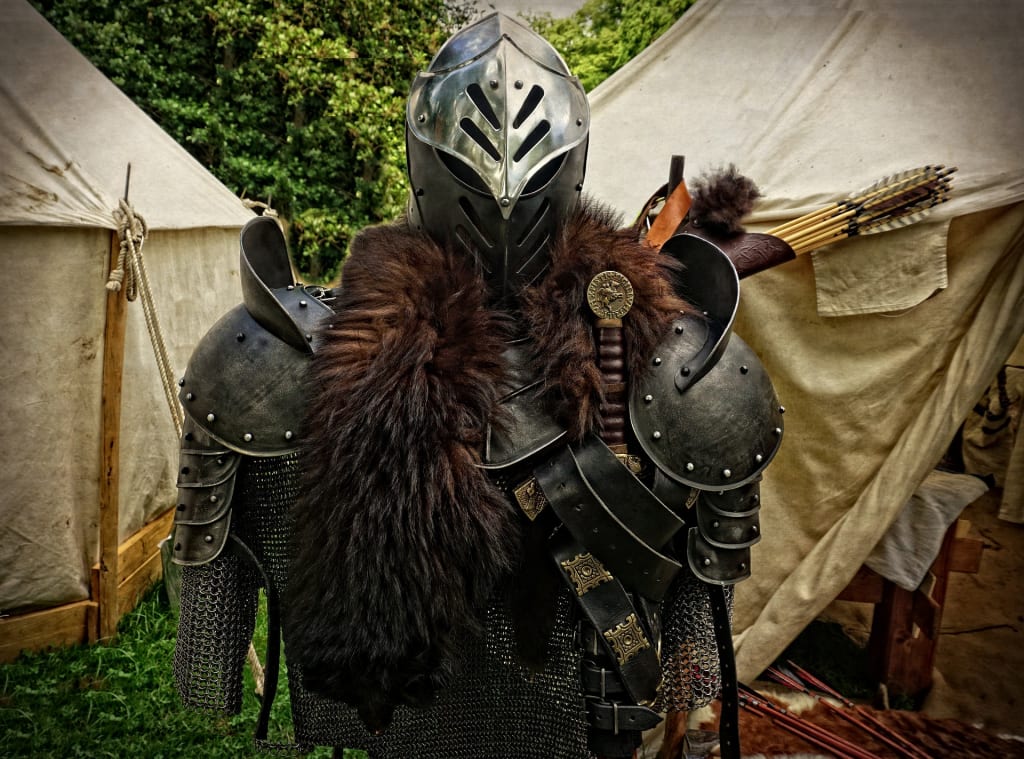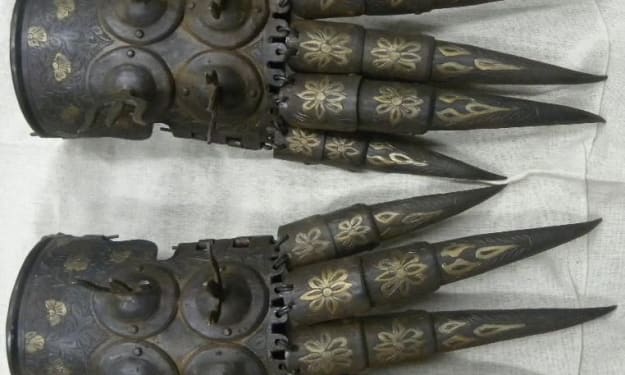Bard V. Skald: What's Better For Your Pathfinder Party?
The Original Versus The Hybrid

When the hybrid classes first dropped in The Advanced Class Guide, there was a lot of talk about how they'd rendered many of the core class options in Pathfinder suboptimal at best, and obsolete at worst. And of all the times I've seen this discussion, perhaps nowhere is it more fast and furious than in discussing the bard, and its heavy metal offspring the skald.
However, if you crack the hood on these two classes, I think you'll see that there's more going on than just a simple upgrade... and a lot of the time the newer option just may not be the better one.
Also, while we're on the subject, don't forget to check out my 5 Tips For Playing Better Bards, along with The 5 Bothersome Bards You Meet in Your Gaming Career.
And for those who are looking for a party idea that combines musicians of all sorts, magical and otherwise, consider checking out 100 Fantasy Bands as well!
Strengths and Weaknesses
Let's begin with the basics. Both the bard and the skald have the same base attack bonus progression, the same hit points, and the same spell progression. They both gain bardic knowledge, they both get versatile performance, and they both get abilities like loremaster and dirge of doom.
So what are the actual differences in these two classes?
Well, let's begin with the bard. Bard offers more skill points, more class skills, and their musical boosts can apply to the entire party without penalizing their abilities and functionality. Bards also gain a wider variety of musical effects, with Countersong, Fascinate, Distraction, and others allowing them a broader bag of tricks when it comes to their tools.
So what do you get with the skald? Well, you get martial weapon proficiency, as well as the ability to use and cast in medium armor without penalty, which can be a life saver. You gain unique music options like Inspired Rage, which can boost your party members' physical prowess through the roof, and allow any barbarians, bloodragers, etc., to essentially gain extra rounds of their unique Rage abilities per day (though it only lets them use their higher bonuses, not their rage casting, Rage Powers, etc. for free). Skalds also gain Spell Kenning, allowing them the ability to cast spells they don't know off of the bard, sorcerer/wizard, or even cleric list, which can be a lifesaver when you need a particular spell in the heat of the moment, even if this ability comes with a fairly steep cost. Lastly, skalds gain access to Rage Powers, and Martial Flexibility, which allows them to take many feats that are typically only available for fighters.
What Does All That Mean?
The might just seem like a lot of game terminology, and folks who aren't elbow-deep into Pathfinder might feel like the room is spinning a bit. So let me break it all down with what I think are the important points to remember.
Bards, as a chassis, are still the best option of the two for those who want all-around flexibility in what they can do, and the things they're good at. They have more skills than any core class except the rogue, and their bardic music can be used in combat, as an out-of-combat distraction, or to assist other party members directly when it comes to difficult tasks and making skill checks. And if you have a party where characters need to be able to concentrate to be effective (meaning you're fairly spellcaster-heavy), then a bard is going to be much more useful to your group on the whole.
Where skalds shine is in parties where you have a lot of martial combatants, and where you need to energize everyone on the battlefield to the exclusion of other options.
Skald gives you more access to armor and weaponry, grants you Uncanny Dodge (which can be a life saver) and it gives you the ability to utilize Rage Powers. And the class's music, from Inspired Rage, to Song of Marching, to Song of Strength, are very physically-inclined boosts. Even Song of The Fallen is used exclusively in combat, because while the ability to temporarily revive fallen companions so they can keep fighting is great in the heat of battle, that isn't an ability that's going to help much anywhere else. Additionally, because Inspired Rage has many of the same effects as Rage, it will greatly benefit the rangers, fighters, and even paladins in the party to some extent, but it won't be something your wizards, sorcerers, magi, etc., can use because it will cut them off from casting spells... something Inspire Courage doesn't do.
At the end of the day, everything in this game is situational, and you need to ask both what your goals as a character are, what kind of party you're rolling with, and what kind of campaign you're playing in.
If you're in a game where you'll have a variety of challenges to face (combat, mystery solving, social maneuvering), where your party is more heavily reliant on spellcasters or Dexterity-related combatants, or where you don't need to be a front-line martial character, then the bard is going to be a better choice.
On the other hand, if you want a character that's got access to better gear, your party is primarily made up of those who need Strength-related boosts, you intend to be going toe-to-toe with enemies once initiative is rolled, and your campaign is going to have a lot of combat in it, then the skald is going to be a far more comfortable fit for you.
Lastly, remember this. Your character's abilities are only as useful as the game you're playing allows them to be. So make sure, before you pick your class and build, that the abilities on your sheet are actually going to be useful tools in the campaign you're playing. Because just like how a barbarian would be a major asset in a campaign focused around fighting a war, they may feel relegated to the background in a game primarily about political intrigues, mystery solving, or other situations where their strengths aren't often necessary.
Like, Share, and Follow For More!
That's all for this week's Crunch topic! Don't forget to check out my full Vocal archive for more... or if you'd like to read some of my books, like my sword and sorcery novel Crier's Knife or my latest short story collection The Rejects, head over to My Amazon Author Page!
To stay on top of all my latest releases, follow me on Facebook, Twitter, and now on Pinterest as well! And if you'd like to help support me and my work, consider Buying Me A Ko-Fi or heading over to The Literary Mercenary's Patreon page to become a regular, monthly patron! Even a little bit of help can go a long way, trust me on that one.
About the Creator
Neal Litherland
Neal Litherland is an author, freelance blogger, and RPG designer. A regular on the Chicago convention circuit, he works in a variety of genres.
Blog: Improved Initiative and The Literary Mercenary






Comments
There are no comments for this story
Be the first to respond and start the conversation.